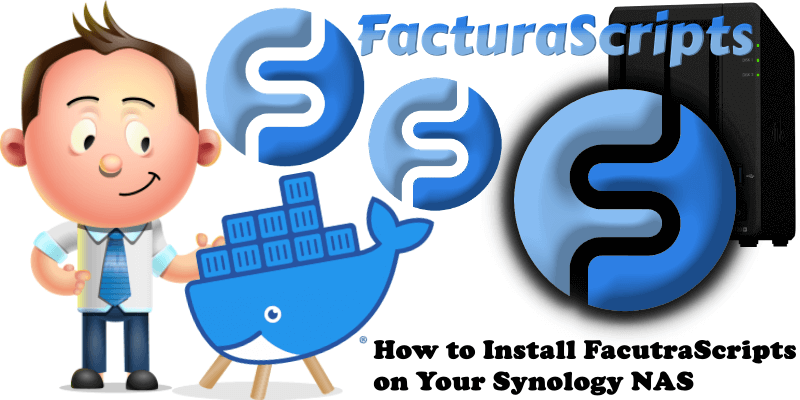
FacturaScripts is an accounting and billing program that you can install on your PC, hosting or in your Synology NAS. With it you can manage the day to day of your company: create invoices, orders, delivery notes, estimates, accounting, inventory etc. So, whether you are a freelancer or an SME, don’t hesitate and try FacturaScripts which is totally free. It won’t take you more than a few minutes to discover that it has everything you need for your business. In this step by step guide I will show you how to install FacturaScripts on your Synology NAS using Docker & Portainer.
This guide works perfectly with the latest FacturaScripts v2021.2 release.
STEP 1
Please Support My work by Making a Donation.
STEP 2
Install Portainer using my step by step guide. If you already have Portainer installed on your Synology NAS, skip this STEP. Attention: Make sure you have installed the latest Portainer version.
STEP 3
Go to File Station and open the docker folder. Inside the docker folder, create one new folder and name it facturascripts. Follow the instructions in the image below.
Note: Be careful to enter only lowercase, not uppercase letters.
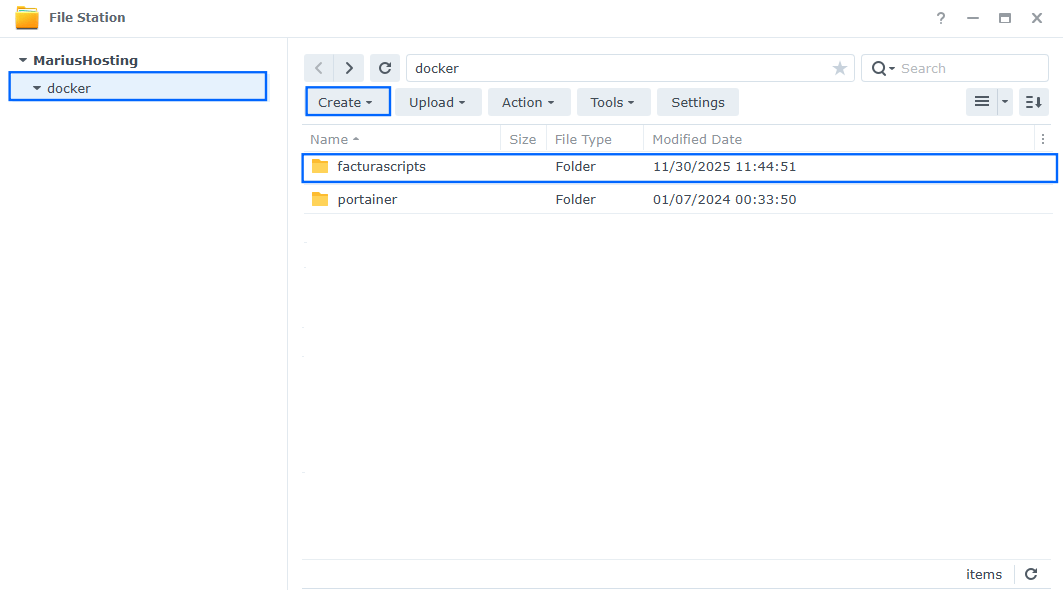
STEP 4
Now create two new folders inside the facturascripts folder that you have previously created at STEP 3 and name them data and db. Follow the instructions in the image below.
Note: Be careful to enter only lowercase, not uppercase letters.
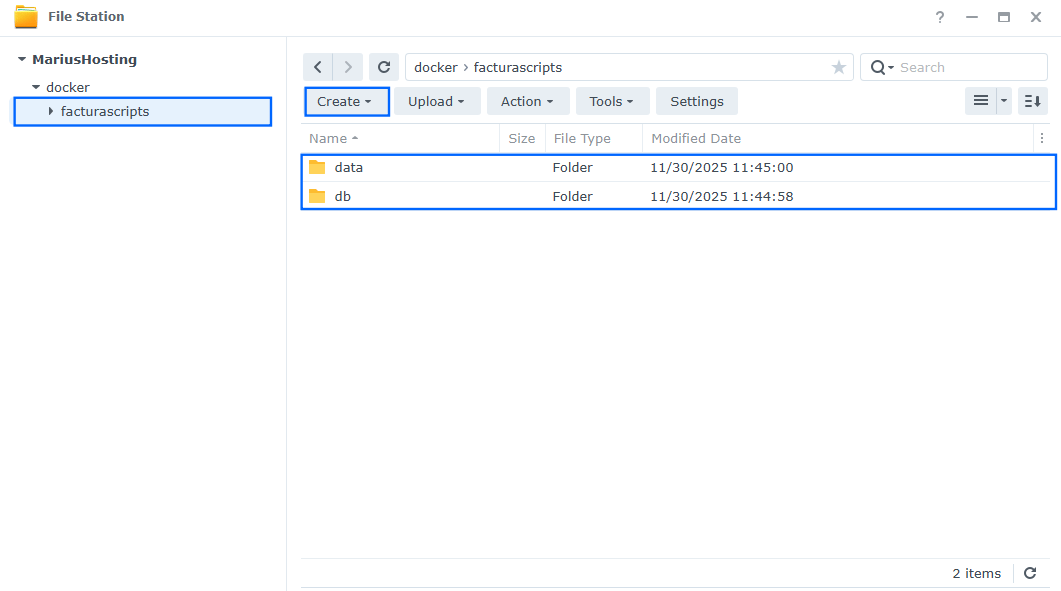
STEP 5
Log into Portainer using your username and password. On the left sidebar in Portainer, click on Home then Live connect. Follow the instructions in the image below.

On the left sidebar in Portainer, click on Stacks then + Add stack. Follow the instructions in the image below.

STEP 6
In the Name field type in facturascripts. Follow the instructions in the image below.
services:
mysql:
image: mysql:8.0
container_name: FacturaScripts-DB
hostname: facturascripts-db
command: --default-authentication-plugin=mysql_native_password
healthcheck:
test: mysqladmin -p$$MYSQL_ROOT_PASSWORD ping -h localhost
interval: 20s
start_period: 10s
timeout: 10s
retries: 3
environment:
MYSQL_ROOT_PASSWORD: mariushosting
volumes:
- /volume1/docker/facturascripts/db:/var/lib/mysql:rw
restart: on-failure:5
facturascripts:
image: facturascripts/facturascripts
container_name: FacturaScripts
healthcheck:
test: timeout 10s bash -c ':> /dev/tcp/127.0.0.1/80' || exit 1
interval: 10s
timeout: 5s
retries: 3
start_period: 90s
ports:
- 5379:80
volumes:
- /volume1/docker/facturascripts/data:/var/www/html:rw
depends_on:
mysql:
condition: service_started
adminer:
condition: service_started
restart: on-failure:5
adminer:
image: adminer
container_name: FacturaScripts-Adminer
healthcheck:
test: ["CMD-SHELL", "nc -z 127.0.0.1 8080 || exit 1"]
interval: 10s
timeout: 5s
retries: 3
start_period: 90s
ports:
- 5381:8080
restart: on-failure:5
Note: Before you paste the code above in the Web editor area below, change the value for MYSQL_ROOT_PASSWORD and add your own password. mariushosting is an example for a password. You have to insert your own password. You will need this password later at STEP 10.

STEP 7
Scroll down on the page until you see a button called Deploy the stack. Click on it. Follow the instructions in the image below. The installation process can take up to a few minutes. It will depend on your Internet speed connection.
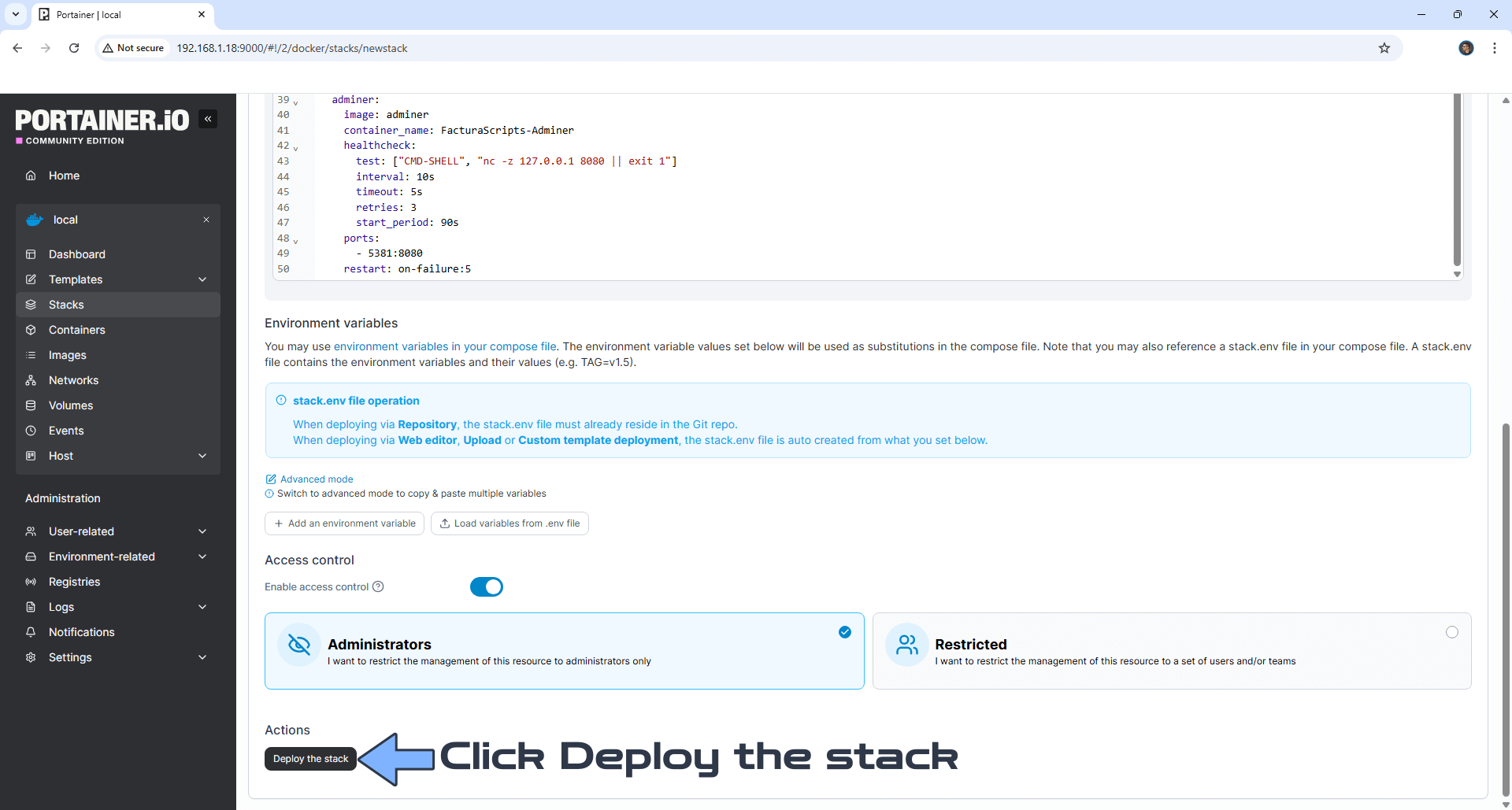
STEP 8
If everything goes right, you will see this message at the top right of your screen: “Stack successfully deployed“.

STEP 9
🟢Please Support My work by Making a Donation. Almost 99,9% of the people that install something using my guides forget to support my work, or just ignore STEP 1. I’ve been very honest about this aspect of my work since the beginning: I don’t run any ADS, I don’t require subscriptions, paid or otherwise, I don’t collect IPs, emails, and I don’t have any referral links from Amazon or other merchants. I also don’t have any POP-UPs or COOKIES. I have repeatedly been told over the years how much I have contributed to the community. It’s something I love doing and have been honest about my passion since the beginning. But I also Need The Community to Support me Back to be able to continue doing this work.
STEP 10
Now open your browser and type in http://Synology-ip-address:5379 Follow the instructions in the image below. Create your Administrator User. In the apposite field, type in the User and the Password. In the Database Server field, type in facturascripts-db. In the Database password field, type in the MYSQL_ROOT_PASSWORD that you have previously added at STEP 6. In my case, it’s mariushosting. Click Accept. Follow the instructions in the image below.

STEP 11
Click Login. Follow the instructions in the image below.
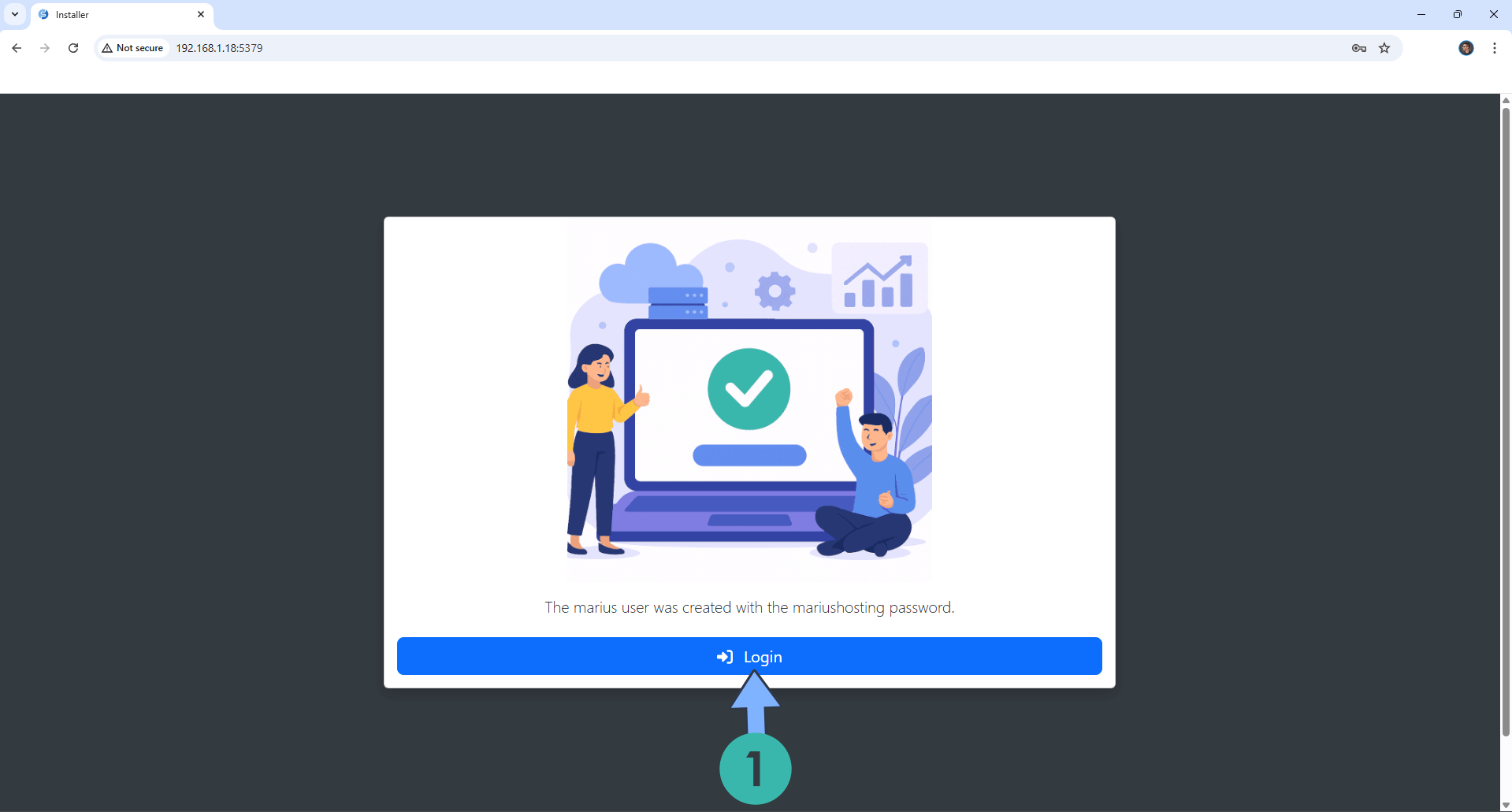
STEP 12
Type in your own Administrator User and Password that you have previously added at STEP 10. Click Login. Follow the instructions in the image below.
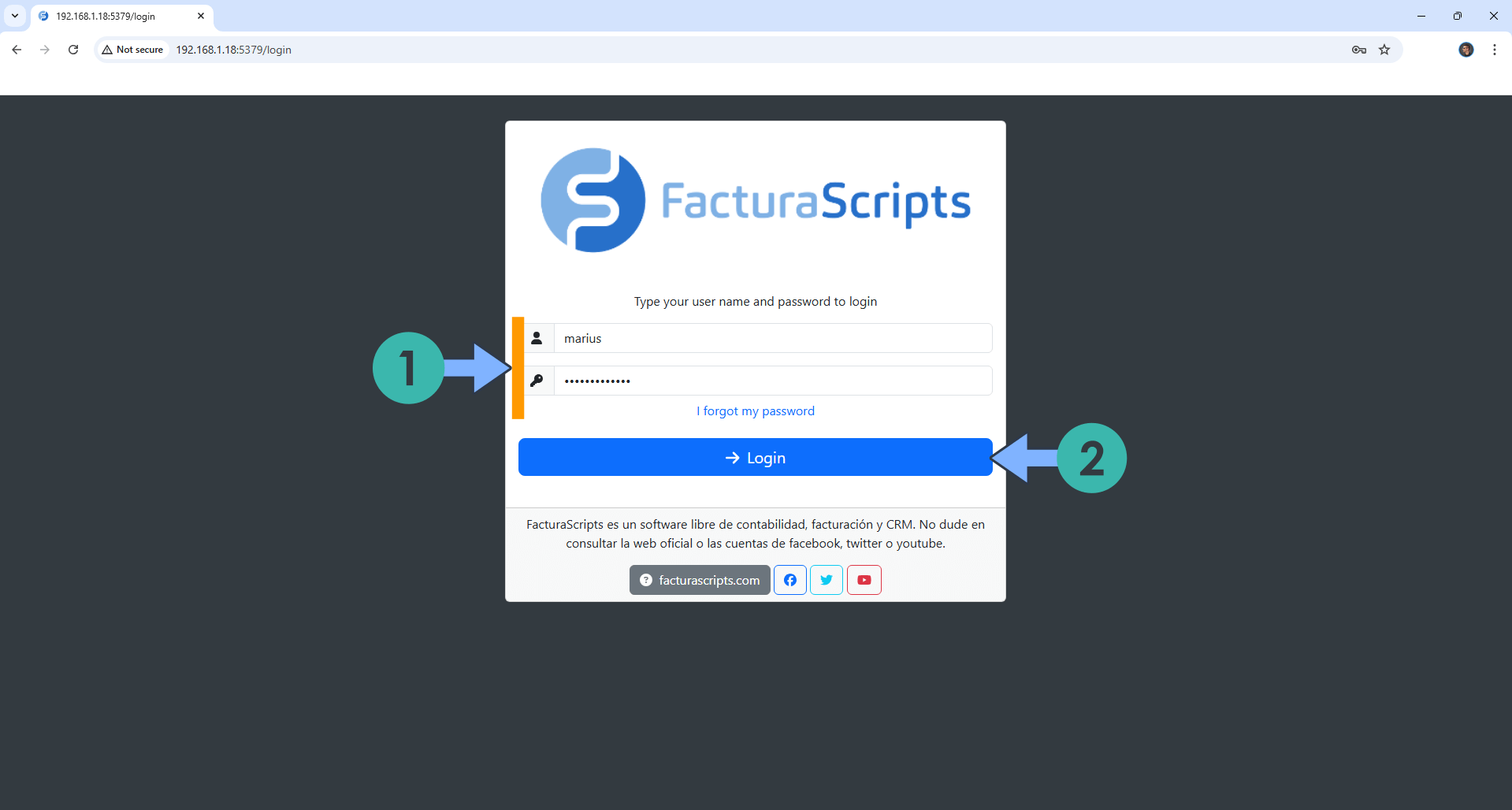
STEP 13
Add information about your Business. Click Continue. Follow the instructions in the image below.
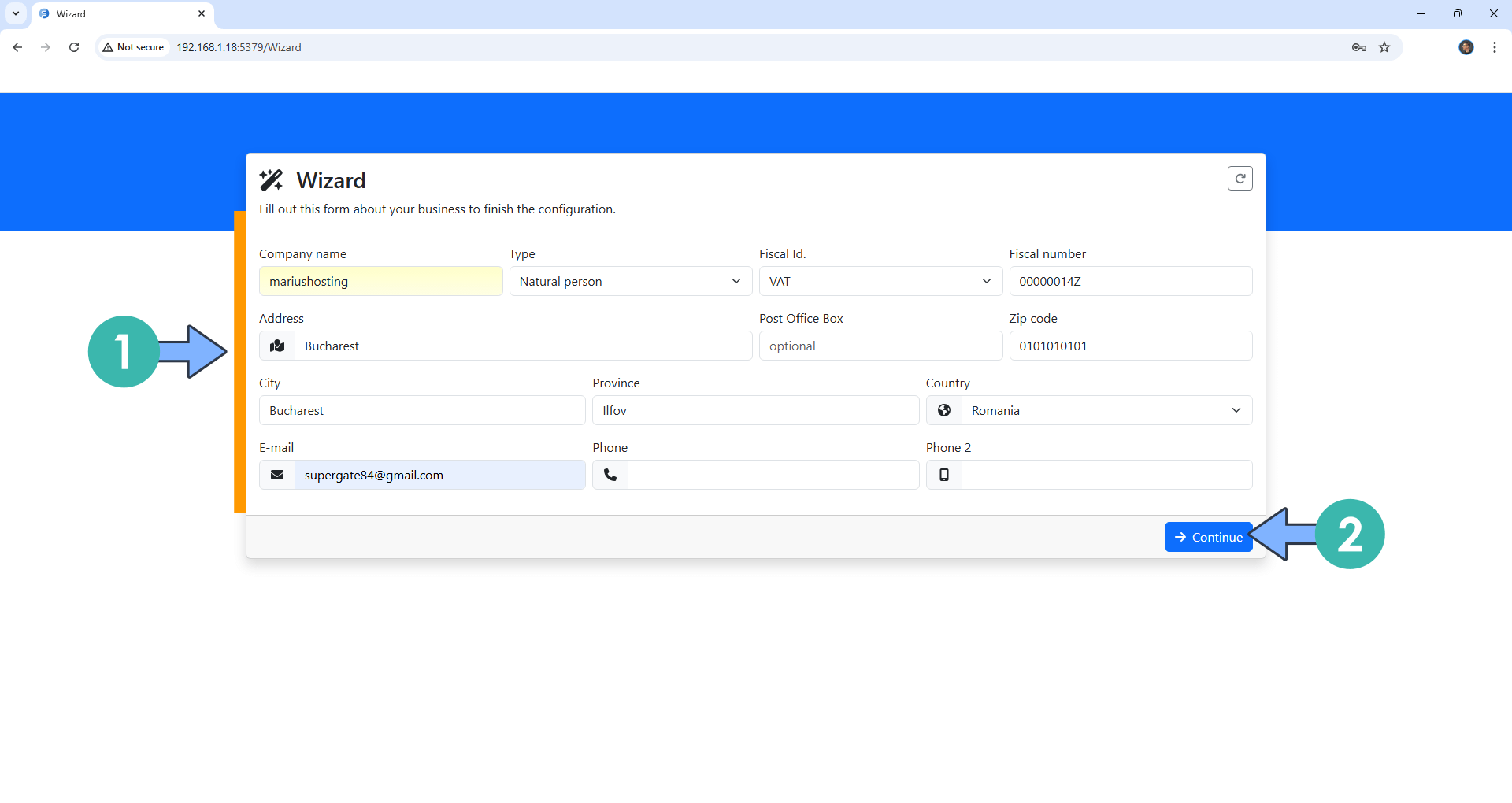
STEP 14
Add your country default tax and VAT regime. Click Continue. Follow the instructions in the image below.
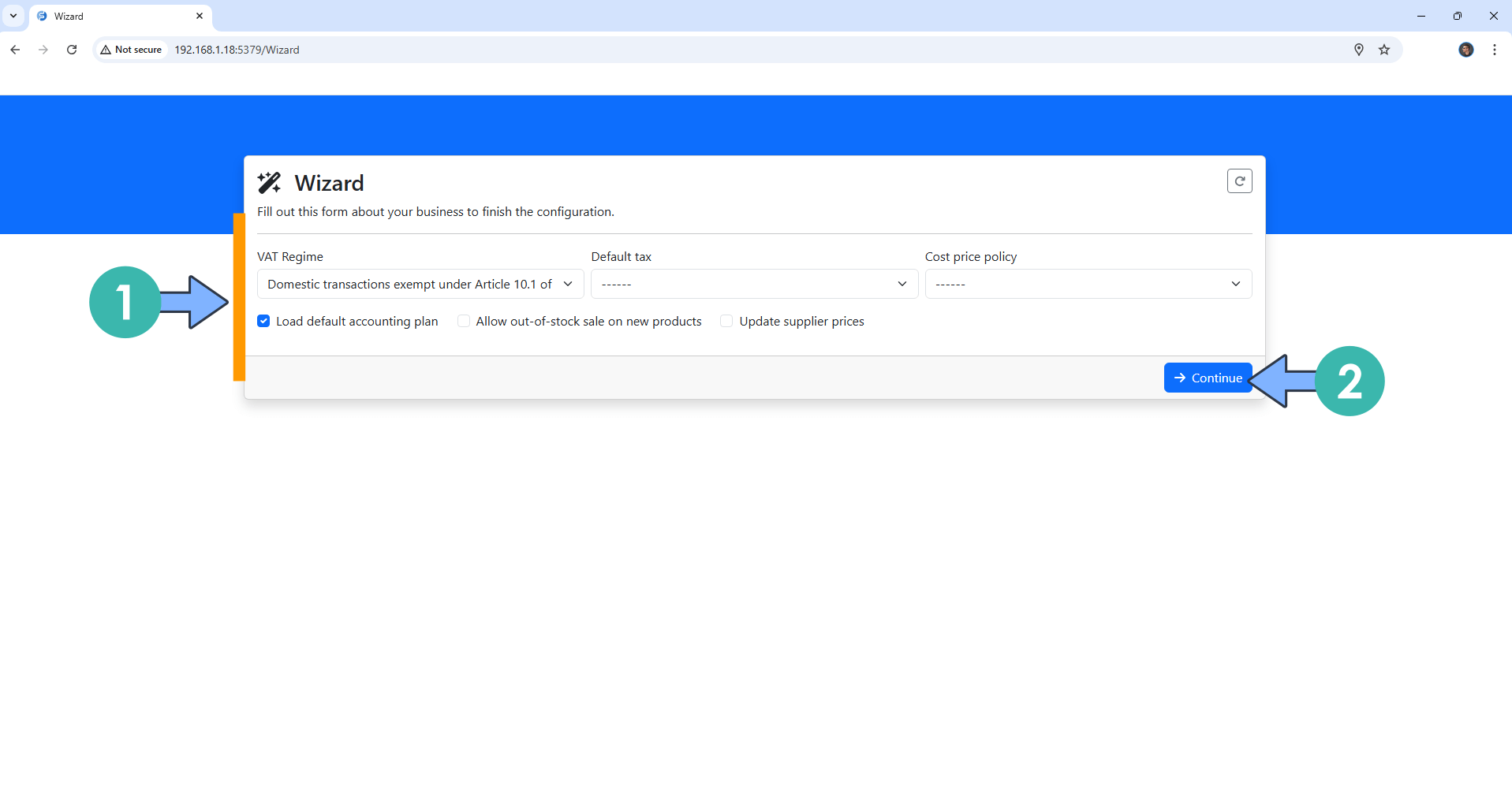
STEP 15
Your FacturaScripts dashboard at a glance!
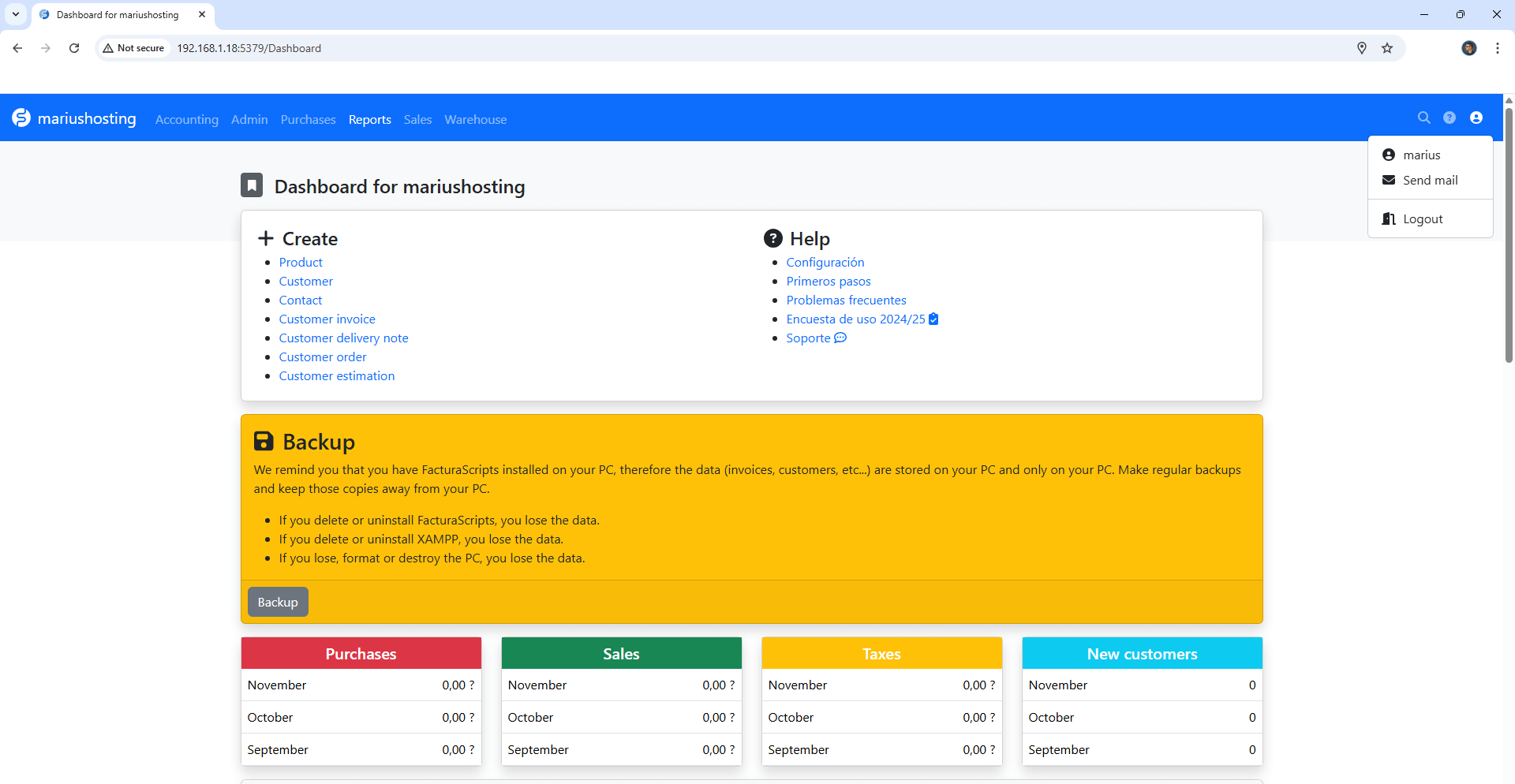
Enjoy FacturaScripts!
If you encounter issues by using this container, make sure to check out the Common Docker issues article.
Note: If you want to run the FacturaScripts container over HTTPS, check How to Run Docker Containers Over HTTPS. In order to make FacturaScripts work via HTTPS, it’s mandatory to activate WebSocket.
Note: Can I run Docker on my Synology NAS? See the supported models.
Note: How to Back Up Docker Containers on your Synology NAS.
Note: Find out how to update the FacturaScripts container with the latest image.
Note: How to Free Disk Space on Your NAS if You Run Docker.
Note: How to Schedule Start & Stop For Docker Containers.
Note: How to Activate Email Notifications.
Note: How to Add Access Control Profile on Your NAS.
Note: How to Change Docker Containers Restart Policy.
Note: How to Use Docker Containers With VPN.
Note: Convert Docker Run Into Docker Compose.
Note: How to Clean Docker.
Note: How to Clean Docker Automatically.
Note: Best Practices When Using Docker and DDNS.
Note: Some Docker Containers Need WebSocket.
Note: Find out the Best NAS Models For Docker.
Note: Activate Gmail SMTP For Docker Containers.
This post was updated on Sunday / November 30th, 2025 at 10:39 PM
